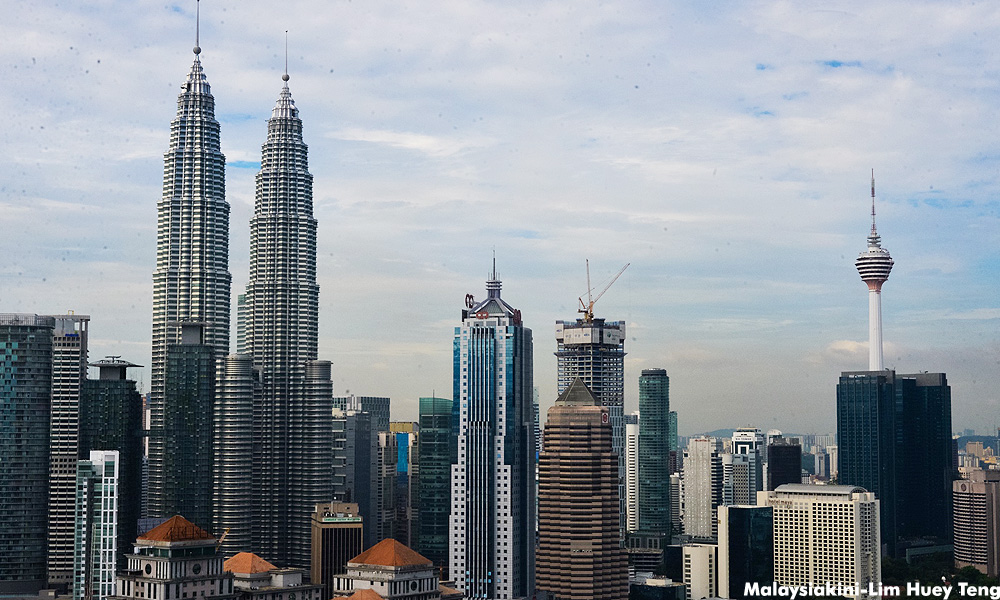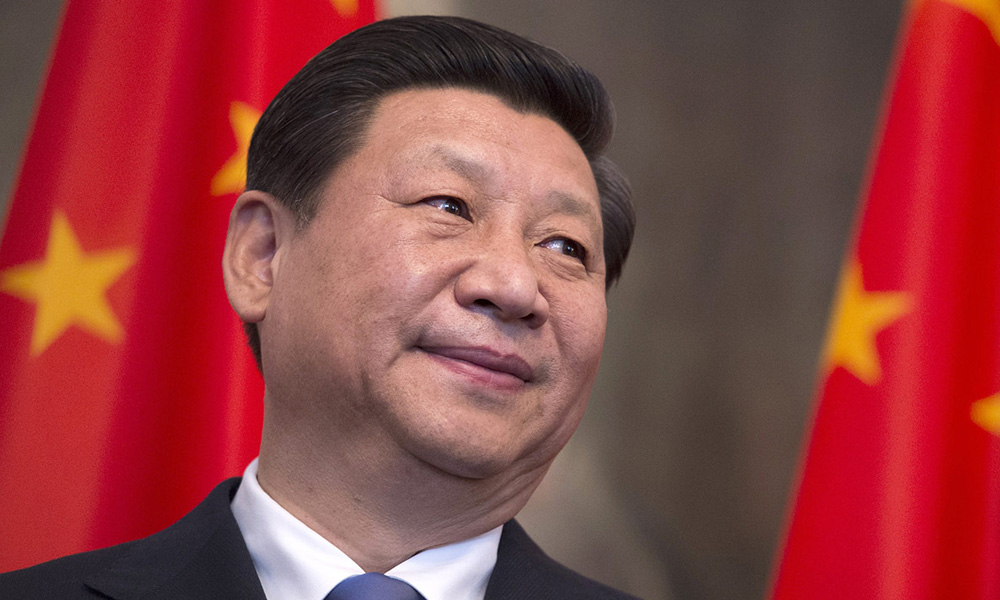COMMENT | Eric See-To, deputy director at BN’s Department of Propaganda, alias BN strategic communications department, on Wednesday questioned Dr Mahathir Mohamad’s 22-year economic management, principally Mahathir’s claim that he’d managed to create a “tiger” economy without the goods and services tax (GST). See-To can’t have it both ways.
I argued that See-To has conveniently overlooked the broad historical regional political economy for Malaysia’s integration into the world capitalist system in the 1970s from its 1960s agriculture base.
It expanded its industrial development in the 1970s and boosted overall economic growth since. But there were powerful and propitious conditions afoot regionally and internationally that combined with domestic policies to give Malaysia the leg up.
The takeaway is that markets don’t (always) work without states. As there’s an ineradicable relationship between economics and politics, so there’s one between states and economies. Show me a genuinely free-market economy anywhere.
Like national states, the neo-liberal World Bank and the International Monetary Fund have habitually interfered in Third World economic policy-making. The IMF tried in 1998; Mahathir pushed it back.
Given Malaysia’s racialised politics, the economy was bound to suffer a similar fate. Racism in Malaysia is permanent. Ask Mahathir, its Malay neo-nationalist architect. It’s unimaginable that a dirigiste Mahathir and a dirigiste and uncontrollably corrupt Umno-BN would not use the instruments and structural power of the state to restructure the economy and ‘society’ to their own ends.
Whether that restructuring has lifted all races and all social classes out of poverty equally into accumulating new wealth is not the issue here. But See-To’s (photo) intent at disparaging Mahathir is. He counter-claim exhibits shoddy workmanship.

Let’s be clear: there are no economic miracles anywhere. Malaysia has never been nor will be one. If anything, while Malaysia has the veneer of a First World infrastructure, the mentality within ‘government’ and ‘society’ remains steadfastly Third World.
See-To’s riposte to Mahathir’s claim is centred on (a) the Plaza Accord (b) Mahathir’s taxes and (c) Mahathir’s privatisation of state assets (or what is known among western liberals as public assets). I’ll treat each separately and get to the crux of the matter.
Plaza Accord. See-To claims the 1985 Plaza Accord was responsible for Malaysia’s industrialisation. Garbage. Plaza was principally an agreement between Japan and the US, whose economy was sputtering from the chronic balance of payments, budget deficits and debt. Japan’s economy was red-hot on the heels of its export-driven predicated on low yen manipulation.
The US, led by the neo-liberal Ronald Reagan administration and a fired-up Republican-dominated Congress, sought redress for the imbalance. Japan relented – until the 1989 Louvre Agreement, on the cusp of the nearly three-decade-long economic crisis.
See-To is right in arguing Plaza saw Japan relocate its uncompetitive industries to low-cost non-Japan Asia. But he more or less implied that Malaysia directly benefited from Japan’s inevitable moves. He’s wrong. Of the total outflow of Japanese investments and production relocation, 80% went to South Korea and Taiwan.
The bulk, however, ended up along China’s eastern coastal belt, where Taiwanese capital had been replanting some of its industries. Remember that, as in Korea, Japan had colonised Taiwan from 1895 to 1945. In both, Japan had forged business ties with their nascent domestic capitalist class.
Where did the 20% of Japanese investments go? Southeast Asia. How much of that came to Malaysia? Not a great deal. Most of it landed in Thailand, Singapore and Indonesia, with a smattering in the Philippines and Malaysia.

In fact, existing Japanese firms in Malaysia merely expanded capacity of their operations around Kuala Lumpur. A few new plants were located in the Prai and Penang free trade zones. Compared to US firms, Japanese operations were smaller in scale and output, in real terms.
Taxes. See-To claims Mahathir taxed anything that moved or breathed. That’s true. But then Mahathir’s development model wasn’t based on consumer-driven growth. Besides foreign investments and raising international debt, Malaysia desperately needed huge pools of domestic savings to service loans and fund poverty-eradication programmes.
It wasn’t a stupid move. It was necessary. The Japanese did the same since the 1600s under Tokugawa, and again during the militarist Meiji era. China has been doing it since 1978.

Indeed, President Xi Jinping (photo) has abandoned his consumer-driven growth model as Chinese economic imbalances and adjustments have worsened. China is racking up big debts. Its financial system is built on sand.
Had it not been for Mahathir’s taxes, the Malaysian economy would look decidedly more Third World than it appears now.
Privatisation. Not one country in the West or a semi-developed country has not privatised its public assets. This is a state does when its budget is faced with chronic problems. It also is an attempt at erasing duplication, resources wastage, overpricing, and associated inefficiencies.
You can see this today in Malaysia’s bureaucracies, in Proton, in Najib Abdul Razak’s personalised 1MDB. Compared to Japan, Malaysia’s bureaucracy is huge because of the priorities and prerogatives of racism.
There’s no question privatisation in Malaysia became more and more awry. It fostered cronyism, nepotism and manic corruption – all under Mahathir’s tutelage. They’ve continued strongly under Najib and Umno-BN. It shouldn’t surprise anybody, much less See-To, who’s privy to this knowledge all the time.
The same applies to subsidies. Malaysians love subsidies because they think subsidies are cost-free. They’d laud Robin Hood for socialising costs and further inefficiencies. It’s socialism – one driven by the politics of regime survival and desperation.
Nonetheless, See-To should tell ‘Malaysians’ which primary social classes benefit from Najib maintaining Mahathir’s privatisation and from Najib’s taxpayer-funded subsidies.
And, who loses?
Related: BN’s Department of Propaganda
MANJIT BHATIA is a US-based academic, researcher and analyst.
The views expressed here are those of the author/contributor and do not necessarily represent the views of Malaysiakini.

